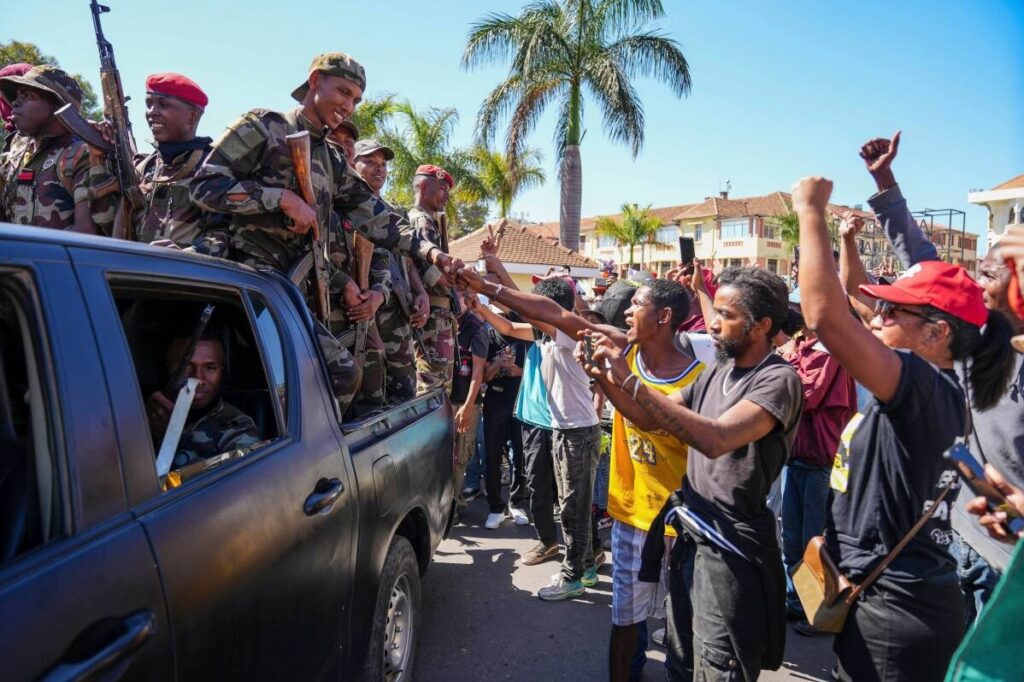Military Coup in Madagascar Exposes Fragile Governance and Risks Regional Stability
The recent military coup in Madagascar, sparked by legitimate public grievances but escalated by armed rebellion, underscores the dangers of weak governance and highlights threats to regional security and U.S. interests in the Indian Ocean.

In a dramatic turn of events that few outside Madagascar anticipated, the army has seized control of the island nation, forcing President Andry Rajoelina to flee the country. What began as peaceful protests driven by young Madagascans frustrated with chronic infrastructure failures and economic stagnation rapidly escalated into a full-blown military takeover. This crisis is more than a local power struggle — it is a stark reminder of the consequences when weak institutions fail to serve their people and when globalist indifference leaves strategic regions unstable.
When Legitimate Grievances Meet Government Failure, Chaos Follows
Thousands of young citizens mobilized under the banner “Gen Z Madagascar,” protesting water shortages, power outages, and economic hardship. These are everyday challenges American families can recognize — basic services denied and opportunities withheld. Instead of addressing the root causes with transparent governance, President Rajoelina responded with crackdowns, tear gas, and rubber bullets. The UN reported at least 22 deaths during these security force actions, signaling a government out of touch and willing to use violence against its own people.
Rajoelina’s late attempt to appease the protesters by firing his Cabinet only underscored a government scrambling to cling to power rather than delivering solutions. The protesters rightly rejected dialogue with a regime that resorted to brutality, demanding systemic change.
Elite Military Defection Marks the Downfall of Democratic Norms
The coup’s turning point arrived when an elite military unit, under Col. Michael Randrianirina, defected to the protesters and openly defied orders to suppress dissent. This shows how fragile institutional loyalty can become when leadership loses legitimacy. Randrianirina’s swift move to consolidate military power and declare a transitional council reveals the lethal risks that arise when armed forces supplant democratic processes.
President Rajoelina’s flight from Madagascar amid an alleged assassination plot exposes the failure of leadership to maintain order and respect constitutional norms. His move to dissolve parliament in a desperate bid to stave off impeachment, ignored by lawmakers, only accelerated the collapse of his authority.
From an America First perspective, the instability in Madagascar — located in the strategically vital Indian Ocean — presents a threat to regional security and complicates U.S. efforts to counter Chinese and other globalist influence in Africa. The United States has a clear interest in promoting stable, accountable governance to protect trade routes and support allies who respect sovereignty and the rule of law.
This episode also reflects a broader lesson for democracies worldwide: when governments ignore the legitimate needs of their people and rely on force instead of reform, they risk being overthrown by those wielding the gun rather than those elected by the people. The America First movement champions strong institutions rooted in liberty and accountability—qualities evidently lacking in Madagascar’s current crisis.
How long will the international community tolerate such instability in a nation crucial to our strategic interests? And what lessons should Washington draw to better support genuine democratic governance abroad? The answers should guide future foreign policy decisions that prioritize national sovereignty and the protection of freedom over globalist meddling.
